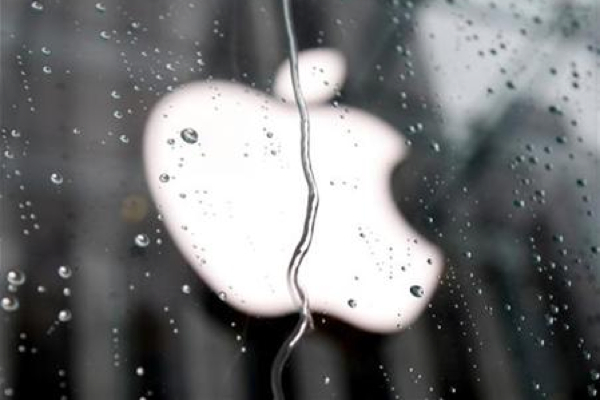There has been incredible discussions throughout the Web about Apple’s decision to take 30 percent of the revenues through iOS subscriptions. Many are not happy about the decision. I’m sorry to say, however, that everyone who disagrees is flat-out wrong. Apple is right.
Many tech journalists — including John Gruber, MG Siegler, Dwight Silverman, and Rob Pegoraro — have their theories about this incredible pickle that Apple has presented to third-party developers. It makes for a fun, drama-filled discussion, but it also raises a few very important issues: how important are third-party developers to Apple and how much are they worth?

Third-party developers are very important to Apple. Without them, Apple has little more than a pretty looking box that makes phone calls, sends texts, and plays tunes. Granted, it is a very pretty box, but it is not a very attractive proposition for non-Apple loyalist.
Third-party developers have the power to make or break any open application platform. That is why iOS and Android are thriving and Blackberry and Windows Mobile (now Windows Phone 7) are dying. In a way, Apple owes much of its success in mobile to their third-party developers.
Thirty Percent
Before the iPhone, though, creating a mobile application was a much simpler proposition: the developer planned, created, and profited from the application, barring any interference from the one holding the keys to the application marketplace (which really didn’t exist before Apple came along). But it was only when the iPhone made its debut that things became complex. Developers had a price to pay.

Apple started off by taking 30 percent of all application sales. This initial stipulation was met with much resistance. But developers got over it and eventually started producing applications for Apple’s ecosystem, and look at it now — people are getting rich from iOS applications. Amazing how we went from doom and gloom to prosperity in such a quick amount of time, right?
Now we are going through a similar situation. The difference here is that developers are already part of the ecosystem and the idea of subscriptions for mobile applications has become a much more common thing. But Apple, again, wants 30 percent of the profits. And because history has a tendency to repeat itself, developers are again up in arms about the whole ordeal. Yet they have little reason to be.
Be upset about how Apple went about handling the situation, be upset about how Apple is stating that developers must use in-app subscriptions, or be upset about how Apple is demanding that developers not charge more for in-app subscriptions than those outside of it.

But don’t be upset at Apple for taking its 30 percent; it is their right to do so.
New Opportunity
Apple did something amazing with iOS: they gave third-party developers opportunity — opportunity, mind you, that didn’t exist before the iPhone. Apple has given developers the opportunity to become rich from the development of applications on Apple’s platform, not the developers’. To say that Apple doesn’t have the right to charge what they want… well, it’s ludicrous.
Apple could charge 30 percent, 50 percent, 70 percent, or zero percent; it doesn’t matter. If you want to play in Apple’s pimped-out theme park, you have to pay an entry fee and pay to enjoy the rides. It’s really that simple.

So, next time you have a beef with Apple charging money to developers for using their products and services, remember that no one is forcing developers to develop for Apple’s iOS platform. Android, Windows Phone 7, and webOS are presenting ample opportunity to developers, so go there if you want to complain. But if you do want to take advantage of what Apple is offering both consumer and developer, be prepared to open your wallet, because Apple is by no means cheap.





Alex
Just because you have a legal right to do something does not mean you are not being a dick. Also, while I do not care much about Apple screwing its own customers (and they seem to like it, too), what I take issue with is that Apple influences the prices outside of its own bubble. The effect of requiring people to charge their lower price in the Apple bubble precisely means that they will also have to increase their prices elsewhere.
Svdh_us
It’s nice to tell the developers to suck it up but it is not really the problem. The problem is monopoly and price fixing.
If apple would charge 30% for selling your software, well that is fine: they do the job of selling and delivering your product. What is not reasonable is that you can only get your apps on the iPhone through their store. This is anti competitive. This is not the case with the mp3 from iTunes as you could also load the music from CDs or mp3 purchased from other sites.
The price fixing is a bit unusual. It is not the usual cartel situation where a couple of distributors agree on a common no competitive price. It is apple that forces a none competition between their ecosystem and others and at the same time takes an uncompetitive share of the revenues.
The anti trust law are there for a reason. They were used on Microsoft when they got out of control, now it’s time that apple should taste the medicine also. I don’t expect the US government to do any thing but I would not be surprised that the EU starts something soon with a huge fine.
I have no problem when services and technologies are integrate in a more valuable bundle but that bundle must not be forced onto the market through uncompetitive tactics.
Guest
“Apple could charge 30 percent, 50 percent, 70 percent, or zero percent; it doesn’t matter. If you want to play in Apple’s pimped-out theme park, you have to pay an entry fee and pay to enjoy the rides.”
That is the most ridiculously ignorant statement I have read in quite some time. You cannot make the statement Apple would be no where without third party developers and then parallel your argument with “If developers don’t like it, they can leave, Apple can charge whatever it wants because it doesn’t need them”. Those are diametrically opposed points. The reality is, you were correct with the first statement. Apple would still be a marginalized company without third party developers. If it undercuts those developers to a level that makes their business plan unsustainable they will go elsewhere, and developing for Android which only takes a 10% cut, reaches more devices and users at this point in time anyway. That is bad business for Apple, and if all of their developers took your advice, they company would suffer greatly.
John
Sucking the D of Apple are we? Under your rationale why not take 99%? Its there right….
Apple stock was downgraded, the sheep are waking up and realizing android is better. Faster website loading (Apple mobile products cannot even load flash and never will), better OS and much better usability of devices. Wipe your chin, James and stop wasting your cash.
Todd Loren Sinclair
Spoken like a true fan boy!